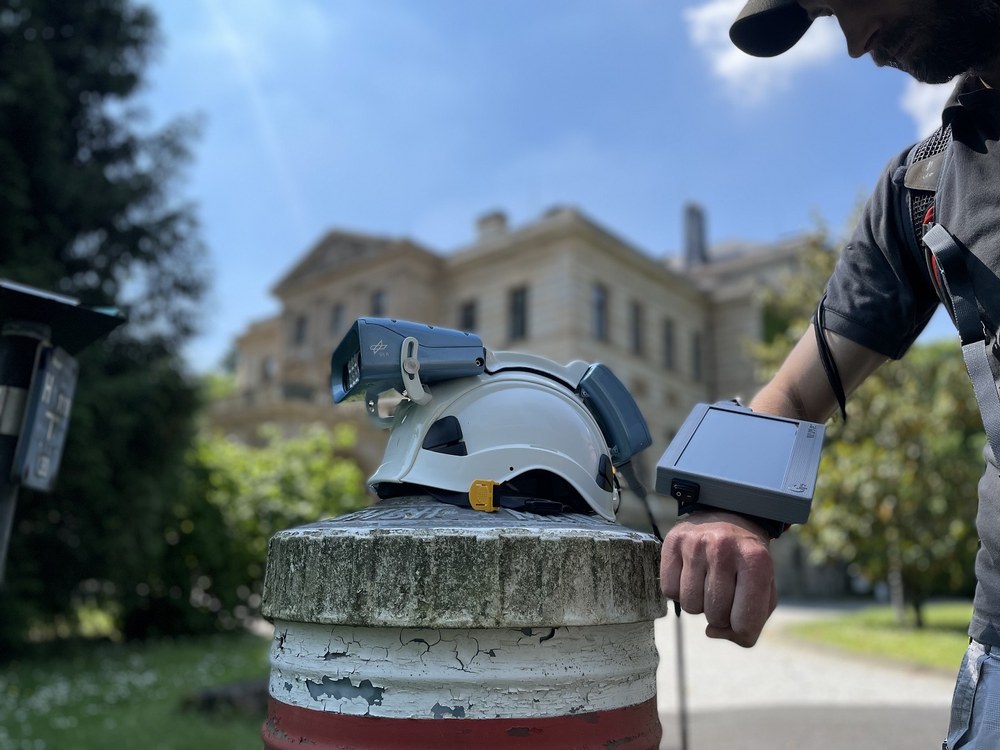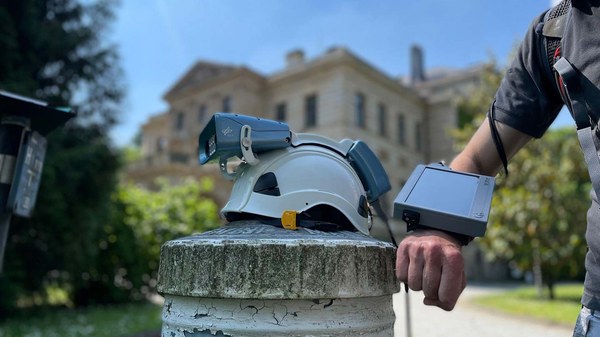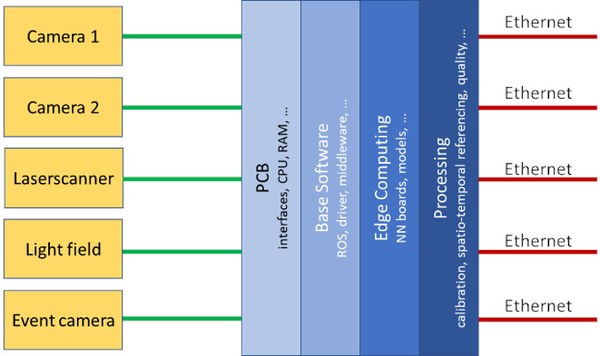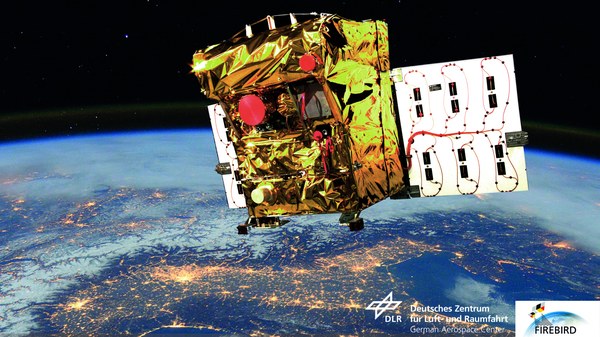Department Real-Time Data Processing

The focus of this department is on the development and evaluation of models, algorithms and data processing chains for the sensors developed by the institute, for example for SaiNSor, Integrated Positioning System (IPS) or FireBird.
The department has developed the Integrated Positioning System IPS, which has been commercialized. The development of optical sensors for applications in transport is concentrated in this department The department also develops new methods such as compressed sensing and light field cameras for space application.
Imaging optical sensor systems will play a crucial role for future space missions for planetary research and Earth observation. They are the technical eyes for most exploration tasks. Data captured by such systems contains very high information content. Similar to the human visual system as the most important sensing organ, optical systems are the primary sensor for the acquisition of environment data for robotic exploration. Rapid technological developments in the last decade have led to the emergence of sensor systems with high spatial, radiometric and/ or spectral resolution generating a huge amount of data. Intelligent processing of this data will be one of the major challenges in the future.
Data from optical sensors have to be processed to a certain level directly at the sensor. In simple cases, corrections of systematic errors, low-loss compression or spatial and temporal referencing have to be applied. Data processing can be extended to the extraction of user relevant information, e.g. optical navigation or hot-spot recognition in infrared systems.
Optical sensor systems will need to be designed based on system theoretical models for different applications. Expected image data can be simulated. Exploiting these investigations, system parameters, retrieval algorithms and observation conditions can be evaluated and optimized. In order to build realistic scenarios, the entire system containing the object, the light source, a possible atmosphere and the sensor itself must be understood and modeled.
The scientists and engineers of the department Real-Time Data Processing have the requisite skills to developing algorithms and solutions for optical exploration. Emphasis is given to spatial and temporal referencing, data compression, optical navigation and 3D modeling. Appropriate techniques will be developed and verified on dedicated computer hardware. The department is able to develop software according to software engineering processes and space standards. The whole gamut from operating systems to sensor specific application software is covered for both payloads and ground-based test equipment.
Based on long and successful experiences in ESA and NASA projects, tasks with regard to project management and system engineering can be taken. The departments scientists and engineers undertake original research, quality publishing and assorted international collaborations.



